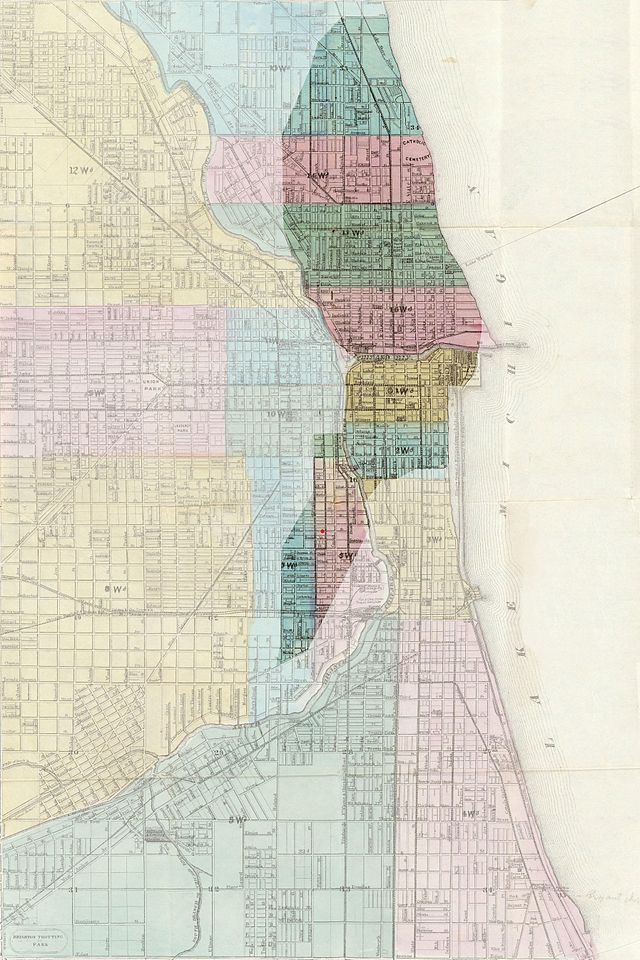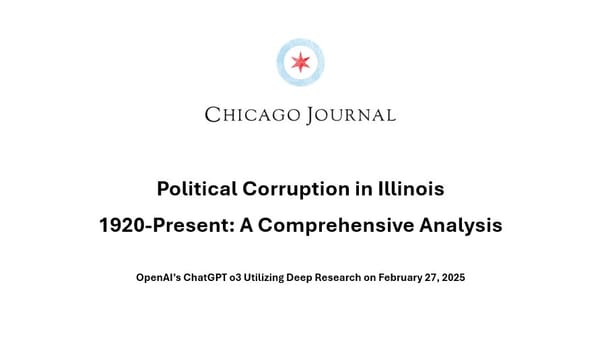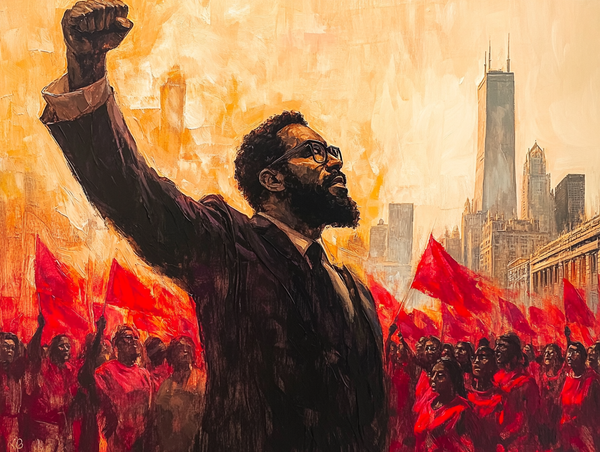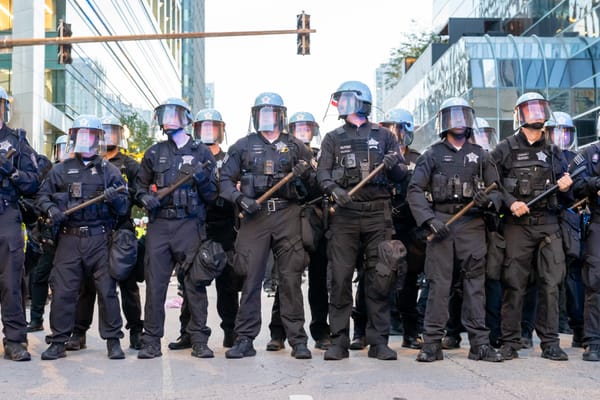150 years ago today the Great Chicago Fire ignited
It was 150 years ago today that the Great Chicago Fire ignited and burned for over 30 hours. The fire killed approximately 300 people and consumed a major portion of the city.
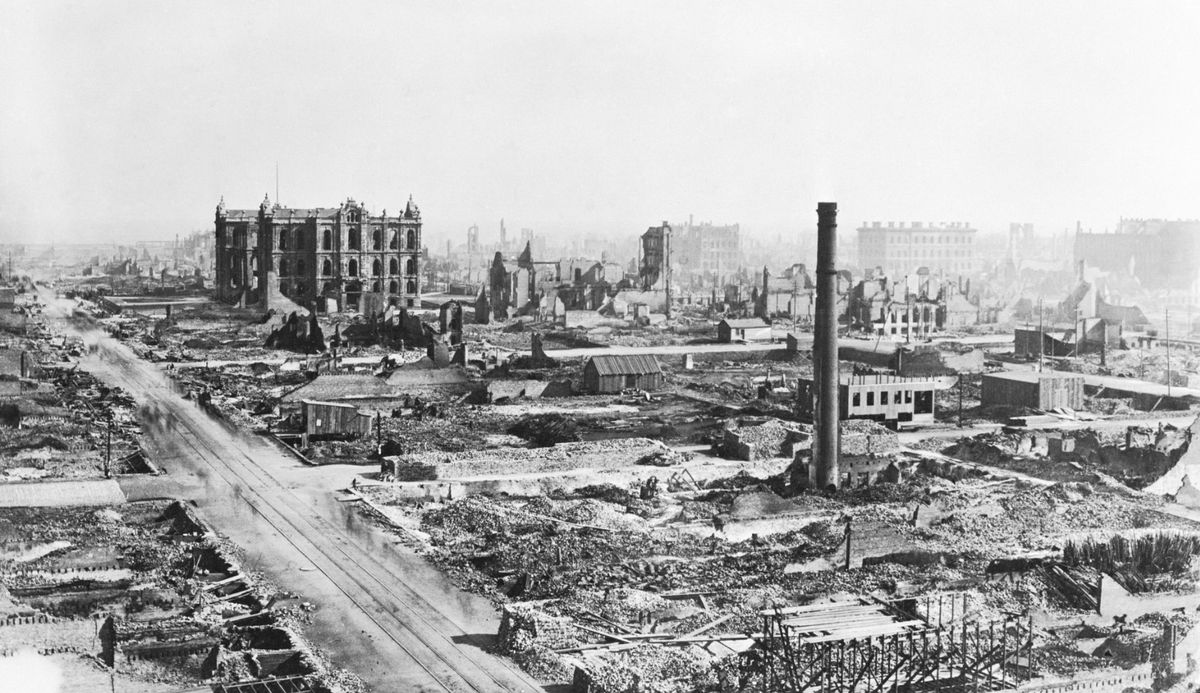
On the early fall night of October 8, 1871, the conditions for destruction were near perfect.
Looking back, disaster was probably inevitable. Fated, almost. Doomed, as the Associated Press reported at the time.
Still, no one could have predicted the type of inferno that would sweep through Chicago and destroy an area 4 miles long, displace 1 in 3 of the city's estimated 324,000 residents (over 100,000 people would be left homeless), and devour over 1/3rd of the city's entire property valuation.
From July 4th, 1871, through that October 8th, the city of Chicago had received just 1 inch of total rainfall causing severe drought conditions for the season. Compounding the matter, not only was over two-thirds of the city's structures, sidewalks, and roadways made out of wood, so, too, were most of the buildings topped with highly flammable tar and shingle roofs.
The Chicago Fire Department of the time had only 185 firefighters to protect the town of 324,000 people. For comparison's sake, the modern city of Chicago's firefighter:resident ratio is nearly 4 times that number and they're equipped with far better firefighting technology and advancements.
We're unlikely to ever know exactly what started the fire that night. Some still swear it was Mrs. O'Leary out milking her cow late at night but that rumor had begun before the fire even stopped burning and there was a strong anti-Irish Catholic sentiment at the time. Others say it was one of Mrs. O'Leary's sons gambling with the other neighborhood boys in the barn and either he himself or one of the neighborhood boys accidentally kicked over the lamp. And further others argue that it was some sort of celestial event and they cite as evidence the 3 other major fires that took place elsewhere along the shores of Lake Michigan that night (including the Peshtigo, Wisconsin fire which, to this day, remains the most deadly fire in American history) among others in the upper Midwest.
No matter how it began, it ignited sometime between 9:00-9:30pm in a neighborhood southwest of the city center, on the north side of DeKoven Street between Jefferson and Clinton streets.
The firefighter response was quick but they were tired. They had fought many small fires all through the previous week due to the summer drought, and there was some confusion.
A strong wind out of the southwest made the fire grow quickly but the firefighters remained hopeful the Chicago river would serve as a natural firebreak. Unfortunately, the wind became even stronger and by midnight the fire had jumped the river. By 2:30am the city courthouse collapsed and witnesses up to a mile away reported hearing its giant bell from its tower ring out as it hit the ground.
The rest is history.
While the statistics of the losses were and still are staggering, in a strange way, it's a wonder that only approximately 300 people were killed. Those totals were never made official as the coroner at the time ultimately had no way of determining exactly how many lost their lives, but many who witnessed the blaze and the speed with which it spread believed the loss of life would have been much greater.
The immediate aftermath of the Great Chicago Fire remains the only time that the city was placed under a true martial law.
Mayor Roswell B. Mason charged General Philip Sheridan and his men with protecting the city for 2 weeks after the blaze. Price gouging and looting were major concerns and the city regulated the price of bread.
While the soldiers remained at their posts for the entire duration of the order, once the fire was extinguished and there was no widespread looting and public disturbances, the order was quietly eased only a few days after it was given.
The city almost immediately began to rebuild. The first shipment of lumber arrived the same day the flames were extinguished.
Donations poured in from all over the country and the world. Mayor Mason requested cooked food for at least 100,000 homeless persons and he got it from nearby cities. The city of London even donated the first books that would become the Chicago Public Library.
Fire codes were reexamined, revised, and rewritten altogether. A fire training academy was built.
Within 20 years after the Great Fire, the city's population had not only rebounded but had grown to 1 million people.
Today, in dedication to the city's resilience the event is remembered as the second of the four stars on the Chicago flag.
The Associated Press, just 25 years old then, sent dispatches first from its office in the Chicago Tribune building before staff fled to a Western Union office, where they filed before fleeing again because of the approaching fire.
The accounts vividly showed the fire's chaos and destruction, work that AP's member news organizations praised then, including this from the Fort Wayne Daily Gazette in Indiana:
"Most heartily do we agree with the Terre Haute Express that the 'General Agent of the Western Associated Press, Hon. W.H. Smith, deserves the thanks of the country for the splendid manner in which he performed his duties at Chicago last week.' With the telegraph buildings burned, and everything in the worst confusion, the most graphic and accurate reports were sent out promptly to all parts of the country."
Here are excerpts of AP dispatches sent from Oct. 8-10, 1871.
Chicago, Oct. 8
Tonight is the most awful night in the annals of the city. The fire, which commenced at 10 p.m., has already swept over a space three times as large as that of last night and it is still rushing on with greater fury than has marked any stage of the progress. The engines appearing almost powerless. Fire Marshal Williams has just telegraphed to Milwaukee for all the steamers they can spare. The conflagration has already devastated at least 20 blocks, mostly composed of smaller class dwellings inhabited by poor people. Not less than three hundred buildings are entirely destroyed and more than that number of families have been rendered homeless.
The wind is blowing almost a gale from the south and a number of sparks and brands are sweeping over the city and threatening destruction on every hand. Since this report commenced, two additional alarms have been struck, and the tower on the courthouse caught fire from the dying brands, but was extinguished by the watchman in the tower. No description can give an adequate idea of the terrible scene. The fire started in a row of wooden tenements on Dockhaven Street, between Jefferson and Clinton, and as was the case last night spread with terrible rapidity before a single engine could get on the ground, and the block is in flames and burning furiously.
New York, Oct. 10 -- 7 a.m.
No press dispatches have been received from Chicago later than six o'clock last evening. The last dispatch was sent circuitously by the way of St. Louis and Cincinnati, and reached us four hours after it left Chicago.
The agent of Associated Press in Cincinnati reports that private advices from Chicago were received in the early part of the night that the fire had been checked, but he was unable to get confirmation of the good news as wires were not working to Chicago and up to three A.M., communications had not been restored.
The "private advices" referred to may have been simply a repetition of the 6 P.M. dispatch from Chicago which represented that flames were checked at 1 P.M. in the southern district of the city by the blowing up of buildings under the direction of General Sheridan, but since that hour a service dispatch was sent by the Western Union Telegraph office in Buffalo, at 11 o'clock P.M., to the general office of the Company in New York that the following had been received from Chicago; no time given:
"The fire is spreading rapidly. The telegraph company has been driven from its temporary office. The whole city is doomed to go. The wind has changed and is blowing the fire in all directions."
Since the above report was received, nothing has been heard from Chicago, and the telegraph office here reports that no telegraphic communication whatever has been had with the city.
New York, Oct. 10
The excitement in the city relative to the Chicago calamity is in nowise abated this morning. All the people who were going to workshops early were anxious readers of the papers containing Associated Press dispatches, and the sales at the news stands have been enormous.
Crowds of business men were at the hotels until a late hour last night, to obtain the latest information on the fire, and many were in trepidation fearing they were joint sufferers with their mercantile correspondents in the apparently doomed city.
It is thought that much of the business will be entirely suspended. Many of our insurance companies will doubtless be compelled to suspend for a short time in order to ascertain their liabilities, while the grain and produce trade will undoubtedly be brought to a complete standstill. Everyone in our community feels a complete sorrow for the sufferers, and the response to the Mayor's proclamation for help will be spontaneous and of a liberality worthy of the great metropolis.
New York, Oct. 10
A Chicago special to the Times dated 2:30 this morning contains the following additional news: The wind is still boisterous and if it turns north, nothing can save the western division. The present loss is estimated at from $100,000,000 to $200,000,000. The fire-proof buildings burned like tinder, especially the banks, not one of which remains. Few business persons saved even their papers. The whole population was busy all night, and the streets are now like a bivouac with sleeping men. The loss of life it is impossible to estimate.
The shipping ordered into the north branch of the Chicago River was sent adrift into Lake Michigan. Many vessels were burned. All business is suspended and must remain so for the present. Tremendous efforts were made to save the Tribune and Post, as well as the City Hall and Government buildings, but nothing remains but blackened stores and crackling cinders. No papers can be published until type comes from elsewhere, as the type foundries are also burned.
The origin of the fire was in a stable where a woman took a kerosene lamp at milking time. A large number of the firemen were killed, and all did their duty nobly, but the streams of water on the burning blocks were like fountain jets against the awful heat of the conflagration. The new hotel, eight or nine stories high, just completed, sent up pyramids of flame, making the water of Lake Michigan ruby colored.
For miles, the burning bridges along the river were swinging, a graceful arch of fire from shore to shore. The burning ships sailed in crimson waters. All the churches in the south division, the Convent of Mercy, all the railroad buildings and the front mansions on Michigan and Wabash avenues, are gone. The very pavements are burned.
Rumor says now that another fire has broken out in Hyde Park, a southern suburb, and is moving north. If this be true, the destruction of the remaining portion of the southern division cannot be prevented. One hundred squares are already burned in the southern division. The population will probably be reduced fifty thousand in a month. Business men cannot resume unless substantial help is sent from the East and West. A hundred thousand employes engaged in mercantile business are out of employment.
The streets leading to the unburnt portion of the south part of the city and all leading to the one unbroken bridge west are completely blocked by all kinds of vehicles carrying sick and injured people and blackened furniture. The county records are safe, but the city records are lost. Mayor Mason has received dispatches from St. Louis, Milwaukee, Detroit, Louisville and elsewhere inquiring what they shall send. He asks for cooked food for 100,000 homeless persons.
Oct. 10 — 11 A.M.
At midnight, last night, the Western Union Telegraph Office, which had been located on the corner of Wabash Avenue and Sixteenth street, was removed to Twenty-second street in consequence of the approach of the fire. At three o'clock, this morning, notice was given that fire was again upon them and they must make a farther retreat. Since that time, there has been no communication with the city.
New York, Oct 10 — 11:10 A.M.
The following good news is just received. The Western Union Telegraph Office furnishes the following: "St. Louis just had communication with Chicago, and reports that there was a heavy rain there last night and the fire is all out."
Source: Boston Daily Evening Transcript, Fall River (Massachusetts) Daily Evening News and The Titusville (Pennsylvania) Herald. Retrieved by AP archivist Francesca Pitaro of the AP Corporate Archives, New York.

